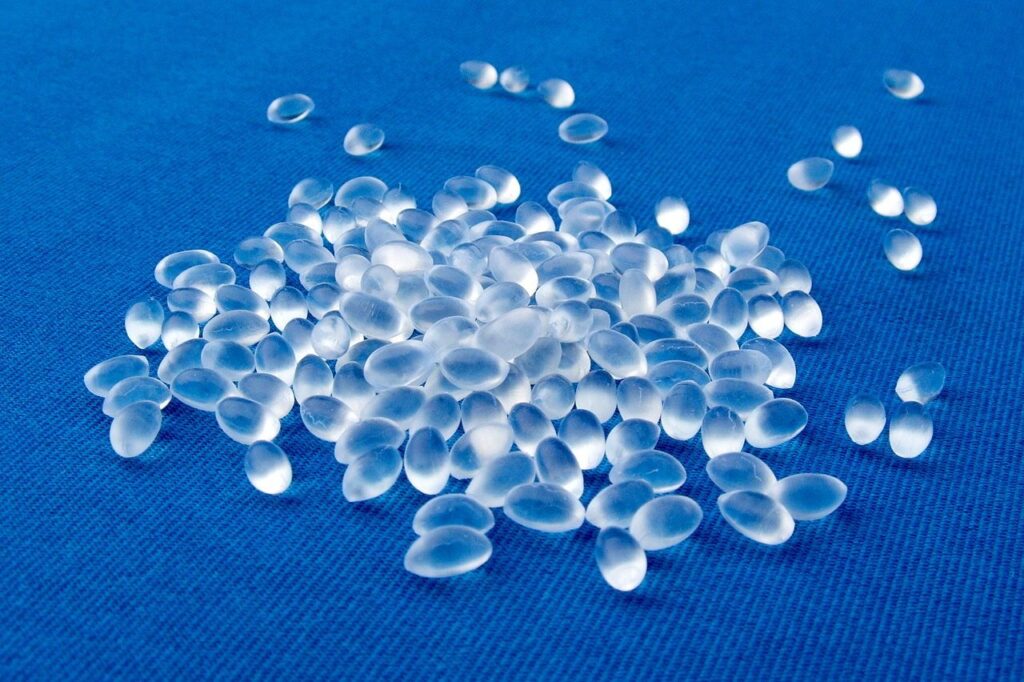
The global bio-based elastomers market is anticipated to hold a market value of US$ 513 Million in 2023 and US$ 1,901.8 Million by 2033. The projected growth rate is nearly 14% during the forecast period from 2023 to 2033. The benefits provided by bio-based elastomers over crude oil-based elastomers regarding volatile organic compounds emissions are expected to contribute to the growth of the market. Major crude oil-based elastomer manufacturers are extensively engaging in developing bio-based elastomers.
End-use companies in the elastomer market are also including sustainable materials in their product manufacturing, which can significantly impact the market growth. For instance, in January 2022, The Goodyear Tire & Rubber Company launched a demonstration tire containing 70% sustainable-material content such as soybean oil and silica produced from rice husk ash to develop tires. Pela, a phone case manufacturing company in Canada, manufactures 100% compostable phone cases from Flaxstic, a bio-based material. This material includes a by-product of the flax oil seed harvest and a bio-based thermoplastic elastomer.
The U.S. in North America is expected to witness significant growth in the demand for bio-based elastomers. This is due to the fact the country hosts a number of conventional elastomer manufacturers such as Avient Corporation, Huntsman International LLC, The Lubrizol Corporation, Trinseo, and Dow that are now engaged in the development of bio-based elastomers.
Obtain a Sample Copy of the Report: https://www.futuremarketinsights.com/reports/sample/rep-gb-15917
Key Takeaways from the Market Study
- Bio-based thermoplastic elastomers dominated the market and accounted for more than 75.0% share of the overall revenue in 2022.
- The automotive application segment dominated the market in 2022. This is attributed to the growing use of bio-based elastomers in automotive trims, dashboards, mats, and tires.
- North America emerged as the second-largest regional market in 2022.
- The high price of bio-based elastomers compared to crude oil-based elastomers is expected to restrain the market growth.
- Europe accounted for the largest revenue share of more than 40.0% in 2022.
- The bio-based thermoplastic elastomers accounted for the largest revenue share of more than 75.0% in 2022.
- Automotive emerged as the leading application segment and accounted for more than 35.0% share in terms of revenue in 2022.
“Technology collaboration is being observed among elastomer raw material manufacturers to develop bio-based alternatives. Such instances create a sufficient supply of bio-based raw materials, enabling adequate production of bio-based elastomers,” says an analyst at Future Market Insights.
Key Market Players
Major players are channeling efforts toward expanding their production capacities to strengthen their market share and cater to the growing demand. Market expansion is anticipated to be aided by the growing number of partnerships and collaborations among key players that are looking to increase their presence in the market. Key players in the Bio-based Elastomers market are Dow; FKuR; BASF SE; ARLANXEO; Trinseo; Eni S.p.A.; Asahi Kasei Corporation; DSM; Mitsubishi Chemical Europe GmbH, Ltd.; Arkema; The Goodyear Tire & Rubber Company; The Lubrizol Corporation; KURARAY CO., LTD.; Wacker Chemie AG; Huntsman International LLC; Covestro AG; HEXPOL TPE; and Avient Corporation.
- In April 2021, Audia Elastomers launched sustainable thermoplastic elastomers under the brand name AudiaFlex consisting of customizable grades that are produced from marine-based, bio-based, post-industrial, and post-consumer sources.
- In November 2022, Asahi Kasei Corporation announced the beginning of the sale of Asadene BR and Tufdene S-SBR for the production of eco-friendly tires. These elastomers are manufactured by the mass-balance method with raw material derived from plastic waste and biomass.
- In August 2022, the Beijing University of Chemical Technology developed bio-based polyester elastomer soles for biodegradable footwear manufactured using corn stalk latex, bamboo fiber, and hemp fiber.
Elevate Your Understanding – Request the Complete Report Methodology for Exclusive Insights! https://www.futuremarketinsights.com/request-report-methodology/rep-gb-15917
Key Market Segments Covered in the Global Bio-based Elastomers Market
By Product Type:
- Bio-based Thermoplastic Elastomers
- Bio-based Thermoset Elastomers
By Application:
- Footwear
- Automotive
- Sports
- Electrical & Electronics
- Others
By Region:
- North America
- Latin America
- Europe
- Asia Pacific
- Middle East & Africa
About Future Market Insights (FMI)
Future Market Insights, Inc. (ESOMAR certified, recipient of the Stevie Award, and a member of the Greater New York Chamber of Commerce) offers profound insights into the driving factors that are boosting demand in the market. FMI stands as the leading global provider of market intelligence, advisory services, consulting, and events for the Packaging, Food and Beverage, Consumer Technology, Healthcare, Industrial, and Chemicals markets. With a vast team of ~400 analysts worldwide, FMI provides global, regional, and local expertise on diverse domains and industry trends across more than 110 countries.
Contact Us:
Nandini Singh Sawlani
Future Market Insights Inc.
Christiana Corporate, 200 Continental Drive,
Suite 401, Newark, Delaware – 19713, USA
T: +1-845-579-5705
For Sales Enquiries: sales@futuremarketinsights.com
Website: https://www.futuremarketinsights.com
LinkedIn| Twitter| Blogs | YouTube